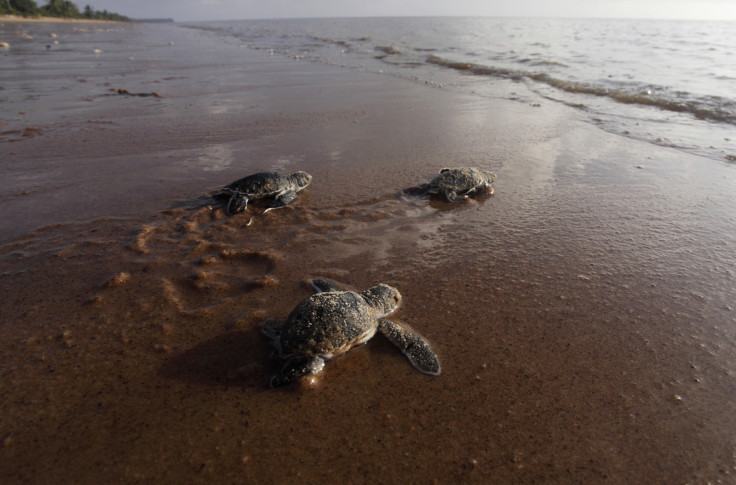Underwater noise pollution causes temporary hearing loss in turtles
The researchers found out that even low levels of noise affected their hearing power which is vital for their survival
A new study led by Woods Hole Oceanographic Institution (WHOI) in the US, has found that turtles experience a temporary hearing loss due to underwater noise pollution caused by activities such as shipping.
The study is yet to be peer-reviewed and will be presented at the 2022 Ocean Sciences Meeting scheduled to be held on March 11. The researchers exposed the turtles to high amplitude, white loud noise and recorded how it affected their underwater hearing ability.
"Our preliminary findings are the first to support that these animals are vulnerable to underwater hearing loss after exposure to intense noise," said Andria Salas, a researcher at the institute.
Underwater noise pollution can cause turtles to experience hearing loss that can last from minutes to days, say researchers who will present preliminary evidence of the effects of intense noise on turtles at #OSM22https://t.co/DEGfDpAjTP
— AGU (American Geophysical Union) (@theAGU) March 2, 2022
The study stated the hearing loss in the turtles lasted anywhere between 20 minutes to over one hour. In some cases, it lasted longer than an hour while one turtle could not recover for multiple days.
The researchers found out that even low levels of noise affected their hearing power which is vital for their survival as they use it to avoid predators. The study focused on two non-threatened species of freshwater turtles: Trachemys scripta elegans and Chrysemys picta.
"If this occurs in nature, turtles would be less able to detect sounds in their environment on these timescales, including sounds used for communication or warning them of approaching predators," Salas said.
"Over half of turtle and tortoise species are threatened, and noise pollution is an additional stressor to consider as we work towards protecting these animals."
This phenomenon has also been observed in marine animals such as dolphins and fish. The noise pollution could be caused by offshore construction or passing ships.
"Notably, this temporary hearing loss is a normal physiological phenomenon in animals. We now see it across the board (mammals, birds, fish, and reptiles)," said an associate scientist at WHOI, Aran Mooney.
"But importantly in this case, it can be a predictor of greater, more deleterious noise impacts such as permanent hearing loss or auditory damage," added Mooney.

© Copyright IBTimes 2025. All rights reserved.






















